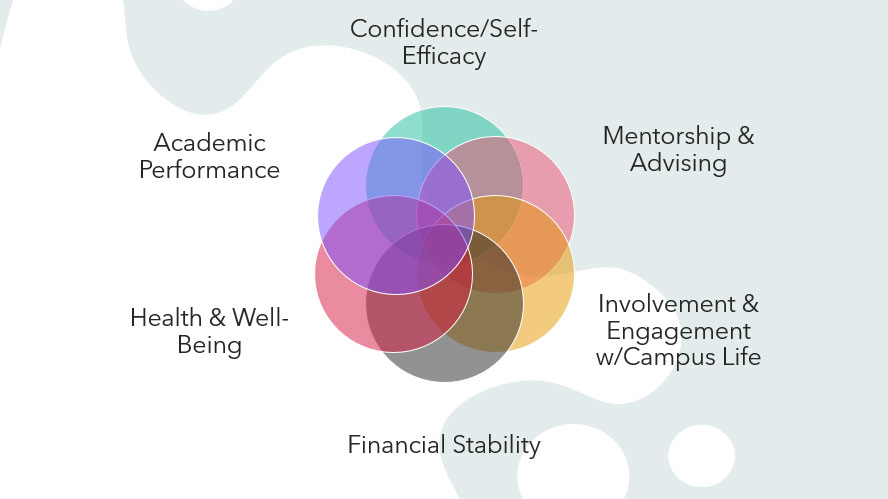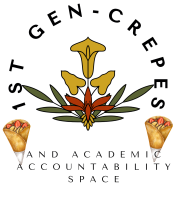Center for Student Success
The path to student success is the ability to articulate and take positive steps towards achieving personal, life, and academic goals.
As students transition to and through their time at Middlebury, many components will influence their ability to meet these goals. The Center for Student Success aims to empower every Middlebury student to thrive academically, socially, and personally.

The Care Form
The responsibility to support and care for one another is a core component of the Middlebury College community. The Care Form helps us provide guidance and assistance when students are facing challenges beyond the classroom. Find more information about Using the Care Form.
Working with Students
Through a collaborative process, the Center for Student Success guides students in their own unique Middlebury experiences toward the following:
- Accessing opportunities and resources
- Support with transitions
- Understanding academic policy
- Personal growth
This is also a place where students can come when they are facing obstacles to their success. Through partnerships with Assistant Deans for Student Success, students will learn how to:
- Set and prioritize goals
- Identify and anticipate challenges to their success
- Seek out resources that appropriately address their needs
- Synthesize information and advice across multiple areas to make well informed decisions
Quick Links
-
Learn How Your Dean Can Help.
-
Find out more about Class Year Experiences.
Working with Faculty and Staff
The Center for Student Success also serves as a resource for faculty and staff. We are a sounding board for mentors, advisors and course instructors seeking to support student engagement.
Faculty and staff may work with the Center for Student Success on the following and more:
- To better understand academic policy in their roles as students’ primary academic advisors
- To share concerns about student disengagement or academic struggles in the classroom, primarily through the use of Course Alerts
- As a partner in supporting students through Academic Probation
- When they have general concerns about students
Quick Links
-
Find more information about what to do if you are Concerned About a Student and how to partner with us on academic policies.
-
Access the Care Form.
Working with Family and Friends
Learn more about our process for how we share Information for Families.
-
If you are concerned about your student, you can fill out the Care Form, picking Other under Affiliation from the dropdown menu.
Campus Partners
-
Student Access and Support
SAS grants help students explore and be a part of the full Middlebury experience.
-
Center for Teaching, Learning, and Research
The CTLR offers tutoring and other learning and studying support.
-
Center for Health and Wellness
Find Health Services, Counseling, Sports Medicine, and Health and Wellness Education.
-
Center for Careers and Internships
Explore jobs and internships, as well as how your major relates to future careers.
-
Student Financial Services
Find information about tuition, financial aid, and changes in financial circumstances.
-
Residential Life
Every related to your housing issues.
-
Disability Resource Center
Accommodations related mental health, physical health, and learning differences.
-
Anderson Freeman Center
Your place to explore personal growth, sustaining identities, and varying cultures.
-
International Student and Scholar Services
U.S. immigration and visa-related support and advising.
-
Scott Center for Spiritual and Religious Life
Meet educators, spiritual caregivers, ritual leaders, allies, and compassionate advocates.
-
Student Employment
Find employment opportunities and information related to on-campus job issues.
-
Community Standards
Commonly accepted standards of conduct upheld by the campus community.
-
Center for Community Engagement
Work with others to make an impact through local, domestic, and global community connections.
-
Athletics
Athletics opportunities, issues, and concerns.
-
Student Activities
Student activities, student government, programs and events, or groups and affiliations.
Frequently Asked Questions
What is the Center for Student Success?
The Center is a centralized hub that integrates Class Deans, Care Management, and Equity Initiatives. We aim to empower every Middlebury student to thrive academically, socially, and personally.
Why did Middlebury make this change?
To simplify access for students and faculty, enhance coordination, and create a more flexible, team-based approach to student support.
What happened to Class Deans and Care Management?
Instead of one dedicated Class Dean per student and two Care Managers for the whole student body, Middlebury now has five Assistant Deans for Student Success and one Assistant Dean for Academic Success who work collaboratively to support students. In addition, the Center for Student Success has a Student Success Coordinator and an Operations Manager to coordinate and facilitate operations within the Center. The Center for Student Success team all report to the Vice President of Student Affairs & Dean of Students.
How will this benefit faculty and staff?
Faculty and staff will benefit from the following:
- One clear point of contact for student concerns
- Faster, coordinated responses
- Continued partnership on academic and personal issues
What kinds of issues can the Center help with?
- Accessing opportunities and resources
- Support with transitions
- Understanding academic policy
- Personal growth
Who can I talk to for complex academic policy questions?
The Assistant Dean for Academic Success serves as the primary liaison for academic policy and faculty support. Students should reach out to studentsuccess@middlebury.edu.
Contact Us
Email studentsuccess@middlebury.edu for any student concern. Our team will triage and connect you with the appropriate Assistant Dean or resource.
Upcoming College Events
Interested in CSS Drop-in Hours and Knots n Thoughts?For more events, please visit MiddPresence.
-
-

First Gen Leadership Workshops
Come learn how to explore your leadership and put it into practice. It is highly recommended that you join every session, but you can pop into any. Programming will begin promptly at 1PM.
Anderson Freeman Resource Center
-
Qur’an Circles with Chaplain Zahra
A Ramadan series of talks and discussion circles on the Qur’an by Chaplain Zahra
McCullough Crest Room
Closed to the Public

